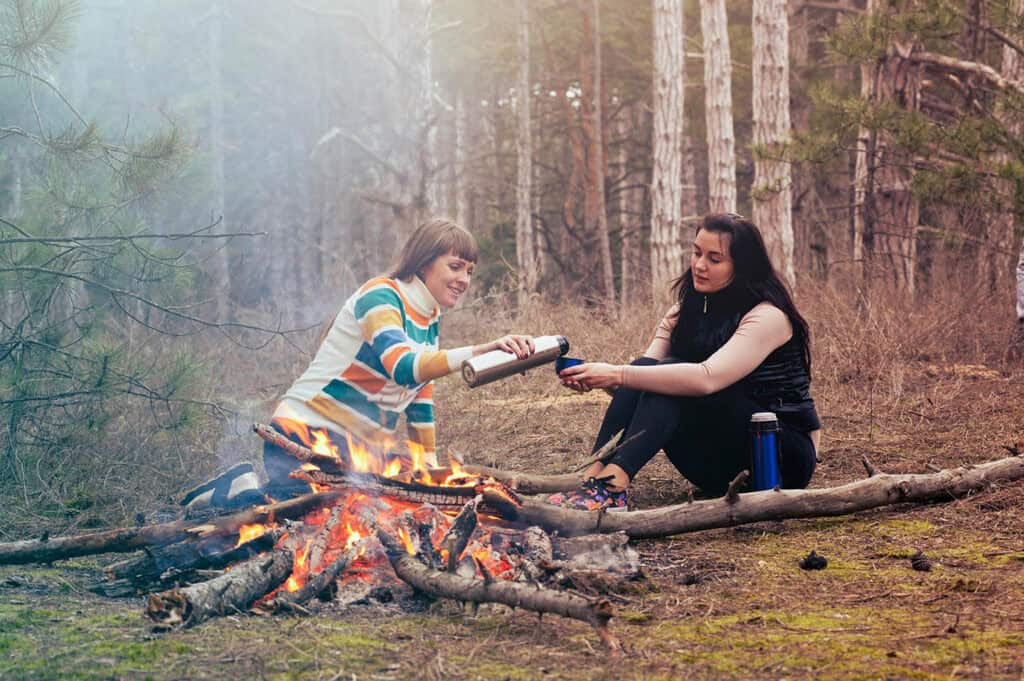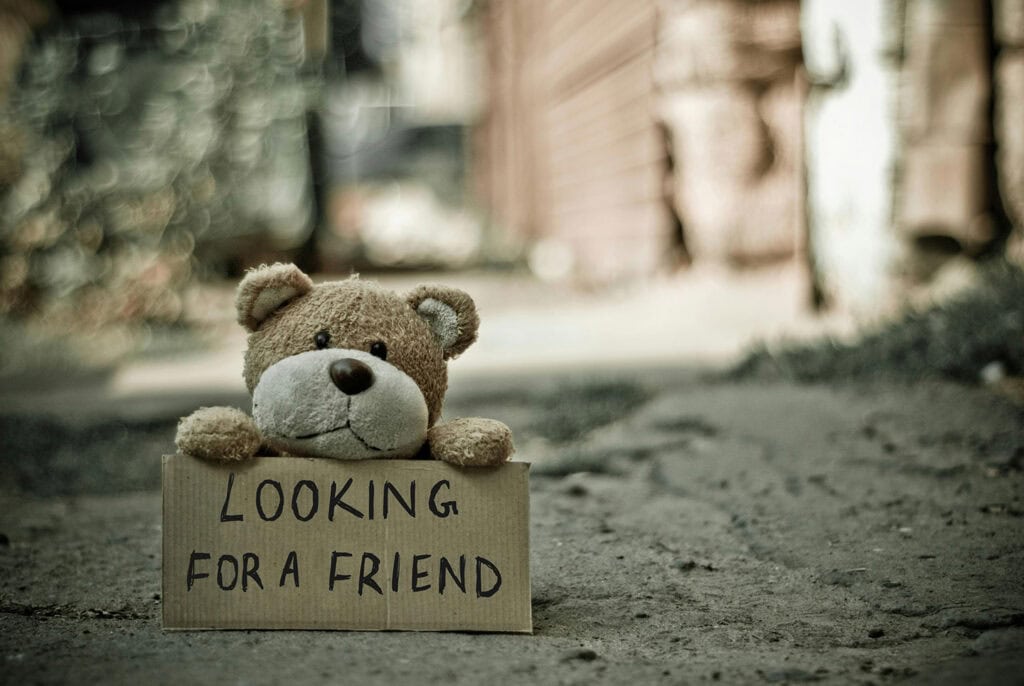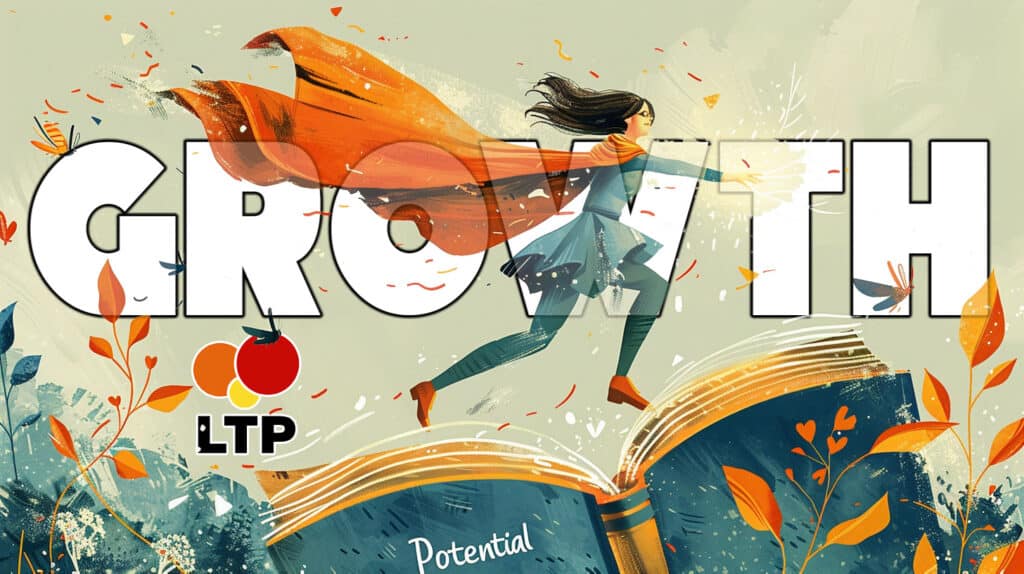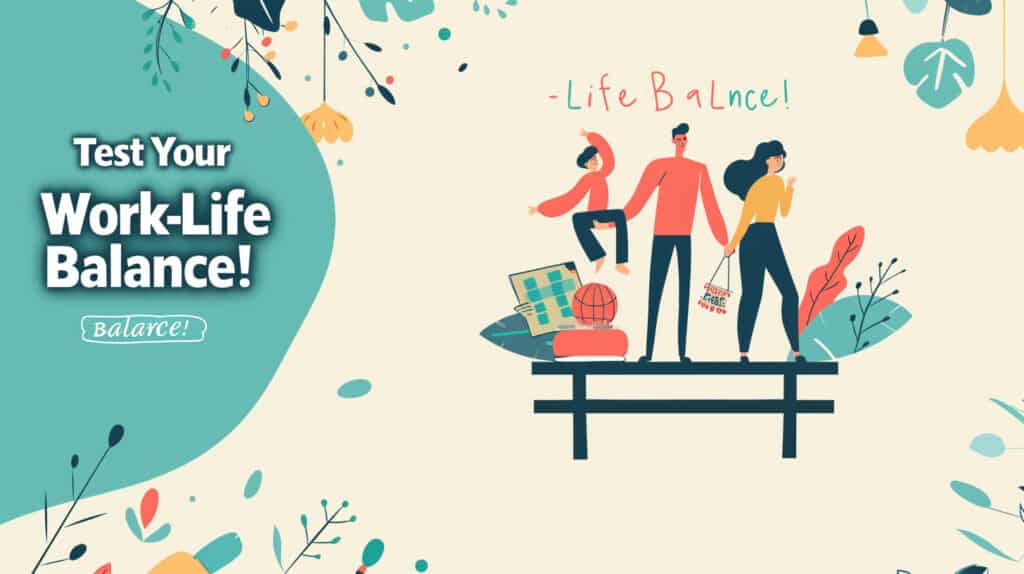
Have you ever felt like personal growth meant losing friends along the way?
You’re not alone if you’ve experienced the challenge of evolving while maintaining relationships.
As someone who understands the complexities of personal development and relationship dynamics, I’ve navigated this journey myself and helped many others do the same.
In this article, we will explore common reasons why friendships change during personal growth. We’ll provide insights on how to navigate these changes with grace and clarity.
Additionally, we’ll highlight the benefits of cultivating relationships that support your growth.
Let’s start this exploration together. Read the article to discover strategies that will empower your personal journey.
By the end of this article, you’ll gain clarity on why certain friendships evolve, feel empowered to prioritize relationships that align with your values, and envision a path to deeper, more fulfilling connections.
Here are 12 reasons for losing friends during personal growth:
- Diverging Paths: As individuals grow, their paths may diverge, leading to different life directions and less shared experiences.
- Changing Values: Evolving beliefs and priorities can create a gap between friends who no longer align on fundamental values.
- Lifestyle Differences: Varied lifestyles, such as different routines or social circles, may reduce compatibility over time.
- Unwillingness to Change: One friend’s resistance to personal growth or change can strain the friendship.
- Emotional Distance: Growing emotional distance due to lack of shared experiences or changing emotional needs.
- Different Priorities: Shifts in priorities, such as career focus or family commitments, can impact time spent together.
- Fear of Abandonment: Fear or insecurity about losing the friendship as one person changes or grows.
- Comparison and Envy: Feelings of envy or comparison can strain friendships as individuals pursue different paths.
- Toxic Relationships: Recognizing a friendship as toxic or unhealthy can lead to its dissolution for personal well-being.
- Seeking Support: Seeking new friendships that align better with current needs for support and growth.
- Incompatibility: Realizing fundamental differences in personalities or interests that make sustaining the friendship challenging.
- Unsupportive Environment: Lack of support or encouragement from friends during personal challenges or achievements.
See also Career and Wealth: Crafting a Fulfilling Career Path and Financial Wellness
Understanding Change in Relationships

Navigating personal growth within relationships often involves a delicate dance of evolution and adjustment. As individuals start their personal growth journey, they may find themselves outgrowing certain dynamics, leading to the loss of friendships along the way.
This is a natural consequence of personal development and self-improvement. While losing friends can be challenging, it’s essential to recognize that it often paves the way for new connections that align more closely with one’s values and aspirations.
For example, as interests shift and evolve, old friends who no longer resonate with these changes may fade away. Similarly, toxic friendships that hinder personal growth may naturally dissolve, making room for healthier and more fulfilling relationships.
Although it can feel awkward or uncomfortable initially, having a change in relationships opens the door to exciting ways of connecting and helps deep and satisfying connections with those who support and encourage one’s growth.
Reasons for Losing Friends

During a personal growth journey, it’s common to lose friends as priorities shift and individuals evolve. One reason is diverging core values.
As you align more closely with your values, friendships may falter if they no longer resonate with these principles.
Similarly, focusing on self-care planning and eliminating bad habits might distance you from friends who don’t prioritize well-being and wellness.
The “new you” emerging from personal development may have different interests, leading to decreased connection with old relationships.
Additionally, feelings of guilt may arise when prioritizing personal growth over maintaining connections. Following new growth often means letting go of old relationships that no longer serve your positive impact.
Ultimately, losing friends during personal growth can be a natural part of the self-improvement process, allowing for deeper connections with those who uplift and inspire your journey.
Here are 12 reasons behind losing friends:
1. Diverging Paths

“Diverging Paths” encapsulates the bittersweet journey of personal growth, where one’s pursuit of self-discovery often leads to the divergence of friendships.
As individuals start their unique paths, they may outgrow old connections, particularly those with toxic dynamics.
Losing friends along the path of personal growth can evoke self-doubt, yet it’s also a testament to evolving priorities and healthy boundaries. While some may lament the loss, others recognize it as an essential step toward authenticity and fulfillment.
Among these shifts, new friendships emerge, offering deep and satisfying connections built on mutual support and understanding.
Though painful, friend breakups can signify growth and the courage to prioritize genuine connections through familiarity. In this journey, cultivating real and supportive friendships becomes not only an admirable quality but also a crucial component of personal transformation.
Here are 10 reasons for diverging paths and losing friends:
- Career Changes: Different job demands and priorities.
- Educational Paths: Pursuing different levels or types of education.
- Family Obligations: Starting a family versus staying single.
- Relocation: Moving to different cities or countries.
- Lifestyle Choices: Adopting different lifestyles or health practices.
- Relationship Status: Changes in romantic relationships.
- Financial Differences: Disparities in financial situations and activities.
- New Interests: Developing new hobbies or passions.
- Personal Growth: Changes in values, beliefs, or personal goals.
- Social Circles: Forming new friendships and social groups.
2. Changing Values

As individuals have transformative ways of personal growth, their values often undergo significant changes, leading to shifts in relationships.
While some may have new and exciting ways of living, others may find themselves outgrowing toxic friendships that no longer align with their evolving ideals.
Losing friendships can be a natural part of this process, as not everyone may accompany them on their journey toward healthier, more fulfilling relationships. Despite the loss, nurturing healthy connections with family members, good friends, and close allies becomes paramount.
As self-esteem flourishes and positive changes take root, individuals gravitate toward those who support their growth and inspire them to continue on the right path.
In this process of personal growth, quality often trumps quantity, and while the circle of friends may shrink, the bonds forged are stronger, contributing profoundly to their overall well-being and fulfillment.
3. Lifestyle Differences

Lifestyle differences often emerge during personal growth, leading to the natural consequence of losing friends along the way. As individuals have their exciting journey of self-development, evolving values may cause them to feel uncomfortable in certain friendships, particularly with toxic friends.
Recognizing the importance of mental health and self-preservation, individuals may prioritize setting healthy boundaries, leading to the dissolution of old friendships.
However, this process also opens doors to new relationships with those who align more closely with their values and support their self-growth.
While it can be challenging to navigate these changes, finding true friends who understand and appreciate the evolving person is a crucial aspect of the self-development process.
Here are 10 common lifestyle differences that can impact relationships:
- Work-Life Balance: One partner prioritizes work, while the other values personal or family time.
- Health and Fitness: Different attitudes towards exercise, diet, and overall health practices.
- Social Life: Varied preferences for social activities, such as going out frequently versus staying in.
- Financial Management: Different approaches to saving, spending, and investing money.
- Living Environment: Preferences for urban versus rural living, or different standards for home cleanliness and organization.
- Hobbies and Interests: Divergent interests in activities, such as sports, arts, or travel.
- Parenting Styles: Conflicting approaches to raising children, including discipline, education, and values.
- Religious and Spiritual Beliefs: Differences in religious practices or spiritual beliefs.
- Cultural Norms: Varied cultural backgrounds and traditions influencing daily life and practices.
- Personal Development: Different priorities for personal growth, such as education, career advancement, or self-improvement activities.
4. Unwillingness to Change

Unwillingness to change can hinder personal growth, often resulting in the loss of friends who no longer align with one’s evolving values and interests. While it may seem daunting, change is an admirable quality essential for progress.
Sometimes, maintaining permanent placement in relationships means recognizing when they no longer serve as a crucial part of your new growth. While it’s important to stay connected with friends and even family, surrounding oneself with those who have a positive impact and share similar core values is vital.
Spending time with friends who are an energetic match brings growth while distancing from wrong people and bad habits is a self-care reminder.
It’s natural for relationships to evolve due to different interests, leading to a natural drift. Feeling guilty about outgrowing certain connections is understandable but initiating the new you ultimately leads to personal fulfillment and authenticity.
Here are 7 reasons for unwillingness to change:
- Comfort Zone: Preferring familiarity and avoiding discomfort.
- Fear of the Unknown: Anxiety about uncertain outcomes.
- Lack of Motivation: Insufficient drive to make changes.
- Stubbornness: Holding firmly to one’s beliefs and habits.
- Insecurity: Doubting one’s ability to adapt successfully.
- Past Failures: Negative experiences from previous attempts at change.
- Resistance to Influence: Rejecting external pressure to change.
5. Emotional Distance

Emotional distance often accompanies personal growth, leading to shifts in relationships that can be both liberating and challenging. When a person goes on a journey of self-improvement, he may find himself outgrowing old habits and interests, gravitating toward new, exciting pursuits.
This evolution can sometimes create a sense of disconnect with old relationships, especially if those connections no longer align with one’s personal development.
While losing friends during this process can feel uncomfortable and even painful, it’s often a natural consequence of prioritizing well-being and bringing deep, satisfying connections.
Recognizing toxic dynamics and setting boundaries becomes crucial, as maintaining personal growth often means letting go of relationships that hinder progress.
Ultimately, navigating emotional distance can lead to a more authentic, fulfilling life surrounded by those who support and inspire personal development.
6. Different Priorities

A path of personal growth often involves prioritizing self-improvement over maintaining certain relationships. As individuals evolve, their values and aspirations may diverge from those of their old friends. While this journey is commendable, it can result in losing friends who no longer align with one’s path.
Recognizing toxic friendships and seeking deep, satisfying connections become paramount. Though it may be challenging to lose friends along the way, having new friendships that help growth and understanding can be immensely rewarding.
Ultimately, the worth of losing friends lies in cultivating supportive relationships that resonate with one’s authentic self, paving the way for genuine connections and personal fulfillment.
See also Self-Love Checklist: Daily Affirmations for Positive Mindset
7. Fear of Abandonment

The fear of abandonment can be a significant obstacle in the process of personal growth. People may find that some friendships no longer align with their values or the path they’re on. This can lead to the loss of close friends, which can be both painful and challenging.
However, it’s crucial to recognize that part of the process of personal growth involves surrounding oneself with supportive and uplifting individuals. While some friendships may fade away, others will endure, and new connections will be forged along the way.
It’s essential to let go of toxic influences and cultivate relationships with true friends who accept you for who you are becoming, even if it means becoming a different person than you were before.
In this exciting journey of self-growth, finding the right friends, rather than simply having many friends, becomes paramount.
Here are 7 reasons for fear of abandonment:
- Childhood Trauma: Experiences of neglect or loss during childhood.
- Past Relationships: Previous experiences of being left or betrayed by partners or friends.
- Insecurity: Low self-esteem and lack of self-confidence.
- Attachment Style: Anxious attachment developed in early relationships.
- Emotional Dependence: Over-reliance on others for emotional support and validation.
- Trust Issues: Difficulty trusting others due to past betrayals or inconsistent caregiving.
- Mental Health Issues: Conditions such as anxiety or borderline personality disorder.
8. Comparison and Envy

Comparison and envy often emerge on the winding path of personal growth, sometimes leading to the loss of friendships. As we prioritize self-care and pursue new interests, guilt may accompany the realization that some relationships no longer serve our journey.
Toxic people, unable to stand our growth, may fade away, replaced by those who bring deep and satisfying connections. While losing friends can be painful, it’s a testament to our evolution.
Real friends celebrate our growth, seeing it as an admirable quality rather than a threat. Through this process, we refine our circle, making space for those who uplift and inspire us on our journey of self-improvement and fulfillment.
9. Toxic Relationships

Navigating toxic relationships is a poignant aspect of the personal growth journey. As individuals commit to self-improvement, they may find themselves outgrowing old dynamics that no longer serve their growth. In this evolution, losing friends can be inevitable yet transformative.
Toxic friends, unable to support personal growth, may drift away as individuals seek deeper, more fulfilling connections. While the loss can be challenging, it’s a testament to growth, indicating a commitment to authenticity and well-being.
Real friends, worth losing toxic relationships for, understand the value of personal growth and cherish the deep connections forged through mutual respect and support.
Change opens doors to new friendships, built on shared values and growth, enriching lives with genuine, meaningful connections.
Here are 10 features of a toxic friendship:
- Constant Criticism: Regularly putting you down or criticizing you.
- Lack of Support: Failing to provide emotional support when you need it.
- Jealousy: Displaying envy of your successes and happiness.
- Manipulation: Using guilt, pressure, or deceit to control you.
- Self-Centeredness: Focusing primarily on their own needs and issues.
- Dishonesty: Frequently lying or withholding important information.
- Negativity: Consistently bringing a negative attitude or outlook.
- Unreliability: Failing to keep promises or show up when expected.
- Disrespect: Ignoring your boundaries and showing a lack of respect for your feelings.
- Draining Energy: Leaving you feeling exhausted or drained after interactions.
10. Seeking Support

During personal growth, one often encounters the need to reassess relationships, sometimes leading to the loss of friends. During periods of personal growth, individuals may seek out new friendships or support systems that better align with their current needs and aspirations, leading to a natural shift away from old friendships.
This could involve distancing from toxic individuals whose negativity impedes progress.
As new interests emerge, the disparity in values may become apparent, causing one to feel guilty about outgrowing certain friends. However, prioritizing self-care is crucial. While it’s natural to mourn the loss, focusing on building self-esteem and staying on the right path is paramount.
In this personal journey, finding friends who support growth and foster healthy relationships becomes essential.
Though losing friends can be challenging, it paves the way for the emergence of supportive friendships, guiding individuals toward a more fulfilling and authentic life.
11. Incompatibility

“Incompatibility” often emerges as a natural byproduct of personal growth. As individuals evolve, they may discover fundamental incompatibilities with their friends in terms of values, beliefs, or lifestyle choices, making it difficult to sustain the friendship.
They may find their values, interests, and priorities evolving, leading to a misalignment with old friends. While deep and satisfying connections may have once characterized these relationships, diverging paths can strain bonds, especially if friends resist or fail to understand the changes.
This transition can be bittersweet, with some friendships fading away as toxic dynamics become apparent.
However, it also opens the door to forging new connections with individuals who share similar aspirations and outlooks. Losing friends with growth underscores the importance of surrounding oneself with supportive individuals who appreciate and encourage personal development, a quality indicative of true, lasting friendships.
12. Unsupportive Environment

Navigating personal growth in an unsupportive environment can be challenging, often leading to the painful reality of losing friends. In some cases, friends may be unsupportive or dismissive of someone’s personal growth, creating a toxic environment that necessitates the end of the friendship.
As individuals evolve, divergent paths can strain once-close relationships. This transition is natural; personal growth necessitates change, and sometimes, friends may not align with new values or aspirations.
Recognizing toxic dynamics and prioritizing self-growth over maintaining unhealthy relationships demonstrates admirable strength.
While it may be difficult to bid farewell to familiar faces, forging new connections with supportive friends who have personal development helps a nurturing environment for continued growth. Ultimately, true friends celebrate individual evolution and encourage each other to thrive authentically.
Here’s 10 disadvantages of an unsupportive environment in friendship:
- Lack of Emotional Support: Missing comfort and understanding during tough times.
- Negative Influence: Exposure to harmful behaviors or attitudes.
- Increased Stress: Criticism and lack of encouragement causing anxiety.
- Communication Barriers: Difficulty in sharing thoughts or feelings openly.
- Stunted Growth: Hindered personal and professional development.
- Conflict Escalation: Issues worsening without constructive advice.
- Feeling Undervalued: Lack of recognition for efforts or contributions.
- Trust Issues: Mistrust or doubt in the friendship due to inadequate support.
- Health Impact: Emotional distress affecting mental and physical well-being.
- Strained Relationships: Tension and potential deterioration of friendships.
See also How to Sleep Early: 10 Simple Techniques for Falling Asleep Faster
Losing Friends During Personal Growth: A Recap
Losing friends during personal growth can feel like a painful sacrifice, yet it’s often a necessary step toward self-fulfillment. While it’s natural to mourn the loss of once-close connections, the journey of personal growth inevitably leads to different paths.
Recognizing toxic friendships and prioritizing one’s well-being may result in the departure of certain individuals. However, this opens the door to cultivating new, supportive relationships that align with our evolving values and aspirations.
Building deep and satisfying connections with those who champion our growth helps an environment where we can flourish authentically.
Though the process of losing friends may be daunting, it’s a testament to our commitment to living our own lives and pursuing personal growth. In the end, the quality of our relationships, rather than the quantity, is what truly matters, making the journey of losing and finding friends an admirable aspect of our personal evolution.


